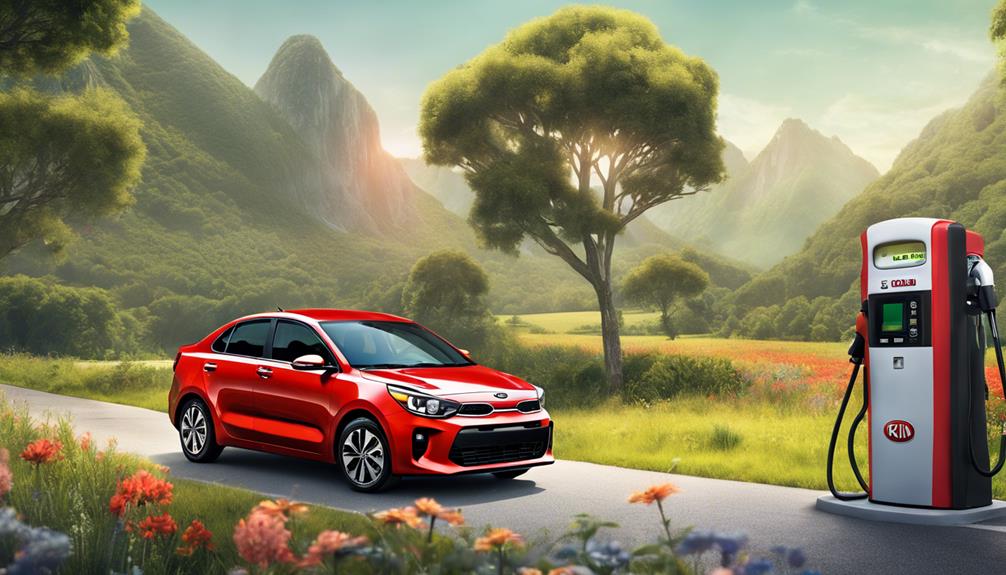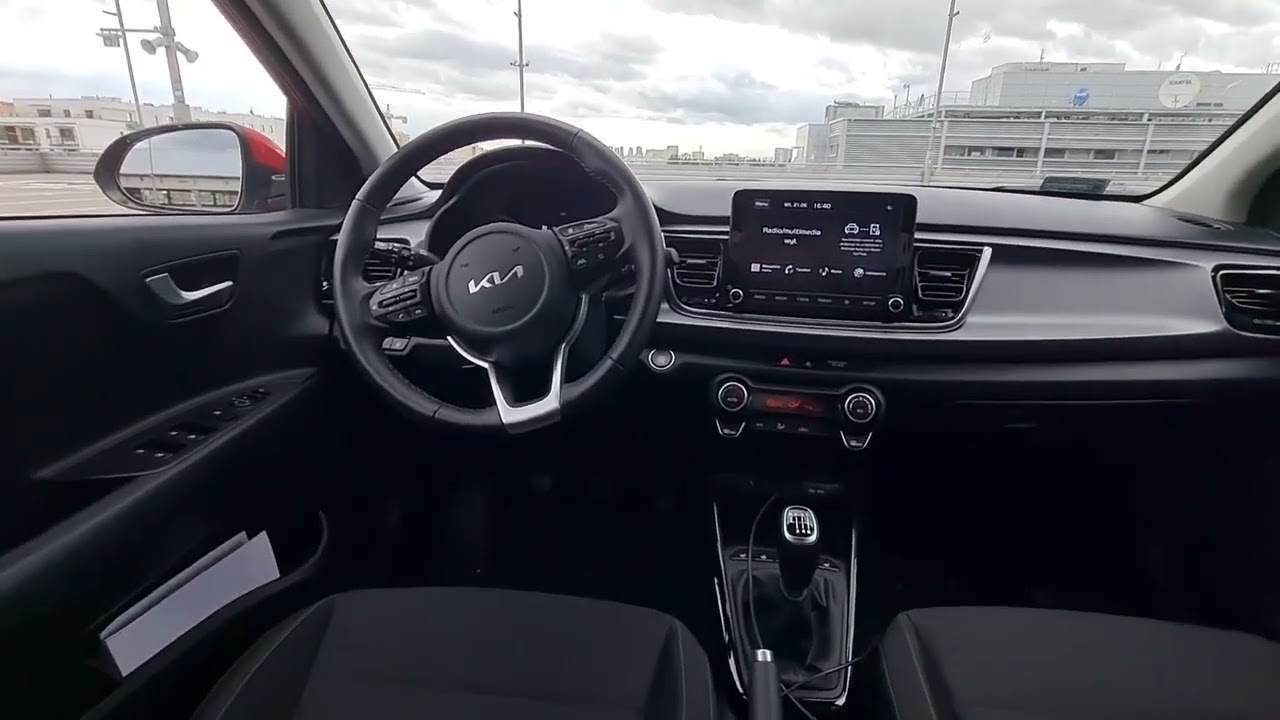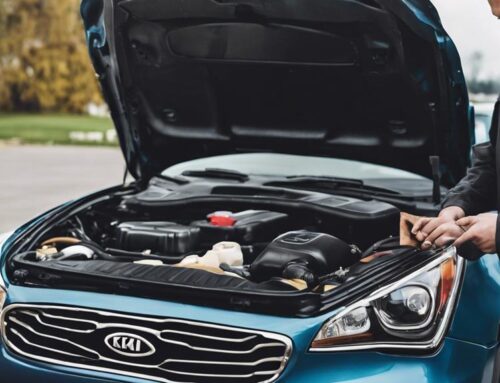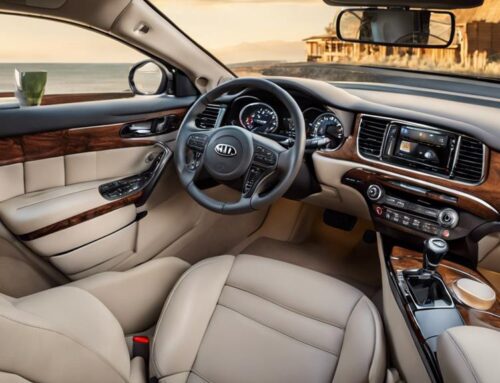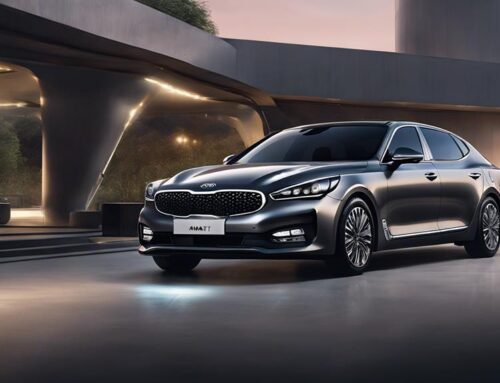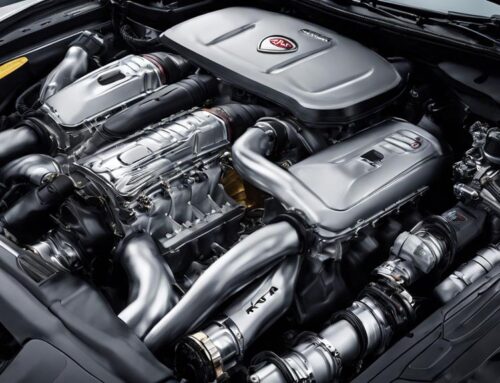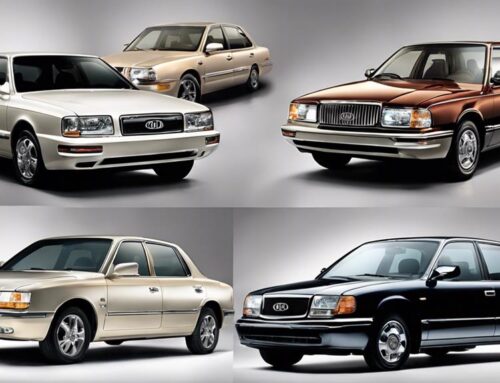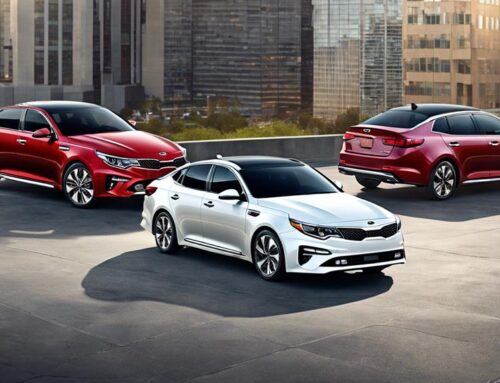To maximize your Kia Rio's fuel efficiency, focus on a few key habits. Start by driving smoothly; avoiding sudden stops and accelerations can greatly enhance your MPG. Keep your tires properly inflated and rotated regularly to guarantee peak performance. Regular maintenance, like oil changes and air filter replacements, is vital too. Consider your cargo; carrying only what you need can prevent extra weight from hurting efficiency. Finally, consult your owner's manual for the right fuel type to use. Want to uncover even more strategies to boost your Kia Rio's fuel economy? There's plenty more useful information ahead.
Key Takeaways
- Maintain proper tire inflation and check pressure regularly to enhance the Kia Rio's fuel efficiency.
- Perform regular maintenance, including oil changes and air filter replacements, to ensure optimal engine performance.
- Practice smooth acceleration and braking to maximize miles per gallon (MPG) and reduce fuel consumption.
- Use the recommended fuel type as indicated in the owner's manual for improved engine efficiency and performance.
- Minimize excess cargo and avoid accessories that create drag to enhance the vehicle's aerodynamics and fuel efficiency.
Understanding Fuel Efficiency Basics
When it comes to fuel efficiency, understanding the basics can make a big difference in how you choose and maintain your vehicle. The Kia Rio is known for its impressive fuel efficiency, so knowing what factors influence this can help you maximize your driving experience.
Start by familiarizing yourself with key terms like miles per gallon (MPG) and how they relate to your daily driving habits.
Your driving style plays a essential role in the Kia Rio's fuel efficiency. Smooth acceleration and gentle braking can enhance your MPG, while aggressive driving can lead to increased fuel consumption.
Additionally, consider the impact of weight. Excess cargo can hinder your fuel efficiency, so only carry what you truly need.
Tire pressure is another important aspect. Keeping your tires properly inflated can greatly improve fuel efficiency. Regularly check them to verify they're at the recommended levels.
Finally, be mindful of your vehicle's aerodynamics; roof racks and other accessories can create drag, lowering your fuel efficiency.
Regular Maintenance Practices
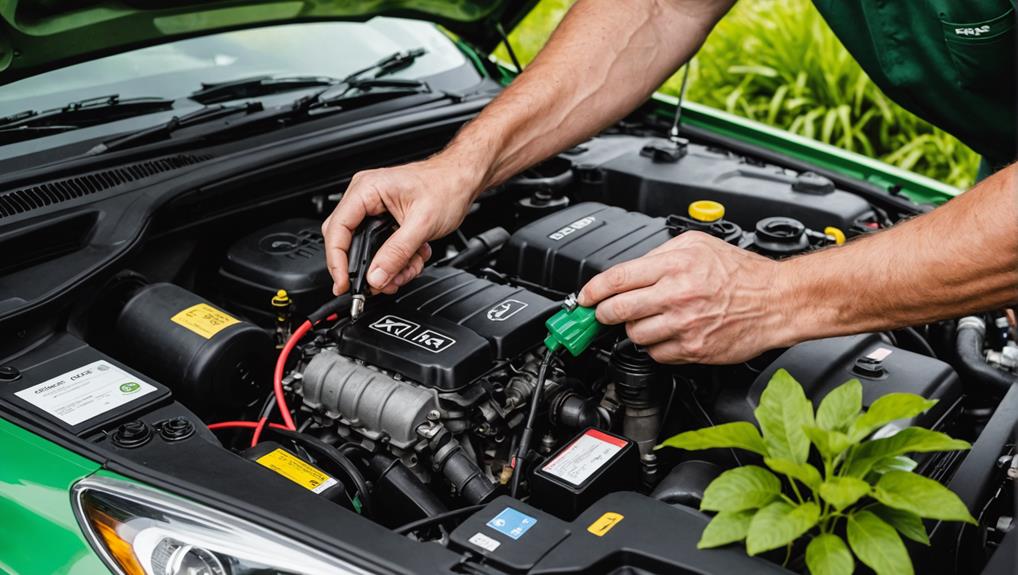
Regular maintenance practices are essential for keeping your Kia Rio running efficiently and maximizing its fuel economy. By staying on top of these practices, you not only guarantee a smooth ride but also contribute to the longevity of your vehicle. Regular oil changes, tire rotations, and air filter replacements are key.
Here's a handy table to help you visualize these important maintenance tasks:
| Maintenance Task | Frequency |
|---|---|
| Oil Change | Every 5,000 miles |
| Tire Rotation | Every 6,000 miles |
| Air Filter Replacement | Every 15,000 miles |
| Brake Inspection | Every 10,000 miles |
| Fluid Check | Every 3,000 miles |
Driving Habits to Adopt
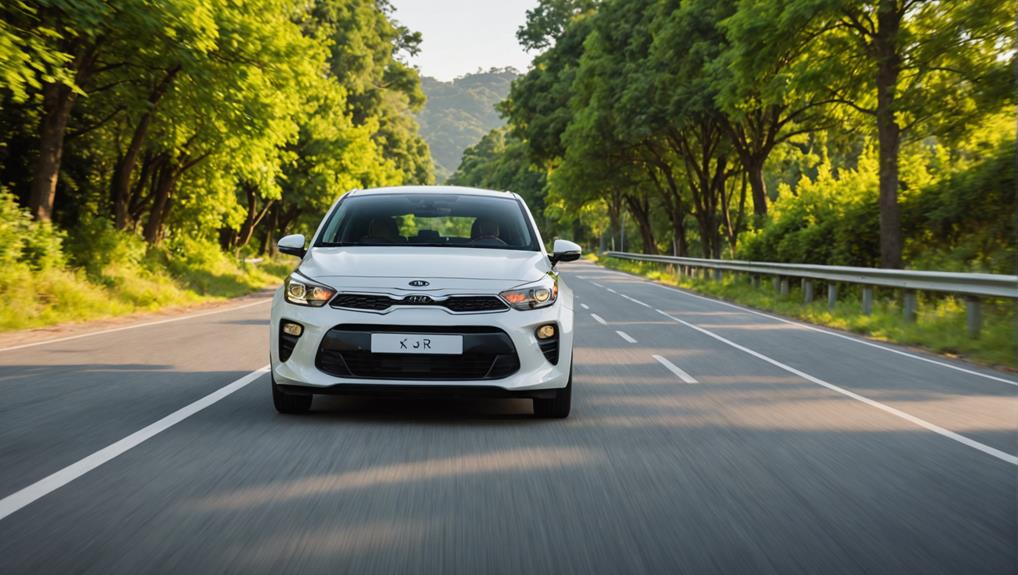
Adopting efficient driving habits can greatly enhance your Kia Rio's fuel efficiency. By embracing a few simple Kia Rio driving tips, you can't only save on fuel costs but also contribute to a healthier environment for everyone.
Start by accelerating smoothly and avoiding sudden starts. Gentle acceleration helps maintain momentum and reduces fuel consumption. When cruising, try to maintain a steady speed; using cruise control on highways can be especially beneficial.
Additionally, anticipate traffic flow ahead of you. By looking further down the road, you can avoid unnecessary braking and acceleration, which helps conserve fuel. Reducing your speed can also make a significant difference; driving at moderate speeds is often more fuel-efficient than speeding.
Moreover, consider carpooling or using public transport whenever possible. Sharing rides not only saves fuel but also fosters community connections.
Tire Care and Optimization
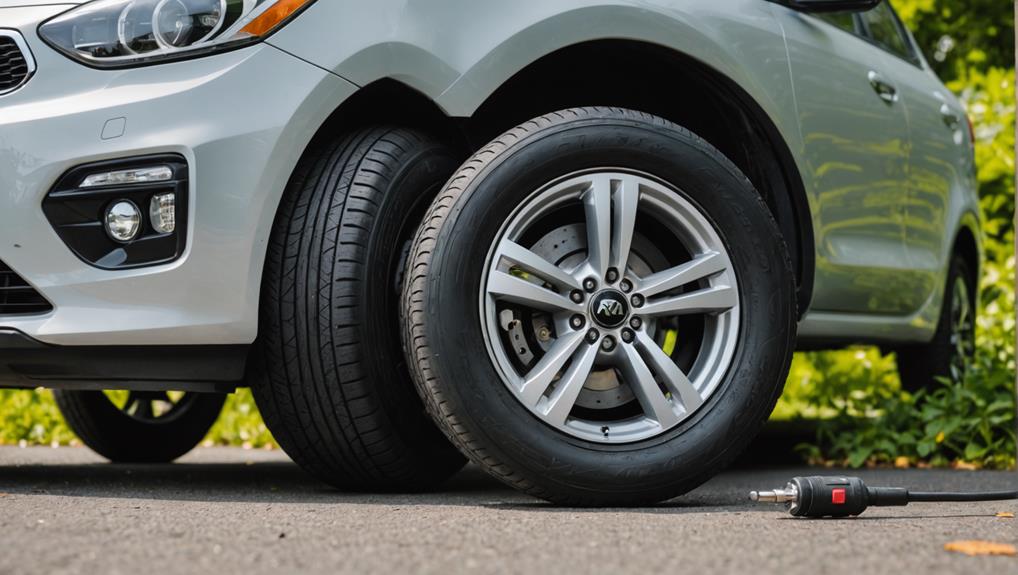
Proper tire care is essential for maximizing your Kia Rio's fuel efficiency. When you keep your tires well-maintained, you not only enhance your vehicle's performance but also contribute to better Kia Rio gas mileage.
Start by regularly checking tire pressure. Under-inflated tires can create unnecessary drag, leading to increased fuel consumption. Ideally, maintain the pressure recommended in your owner's manual.
Next, inspect your tires for wear and tear. Uneven tread wear can indicate misalignment or other issues, which can negatively affect your car's handling and fuel efficiency.
Rotate your tires every 5,000 to 7,500 miles to guarantee even wear, further improving your Kia Rio's performance.
Lastly, consider the type of tires you're using. Opt for low-rolling-resistance tires, specifically designed to enhance fuel efficiency without sacrificing safety or performance.
Keeping your tires in top shape not only serves your needs but also benefits the environment by reducing fuel consumption.
Choosing the Right Fuel
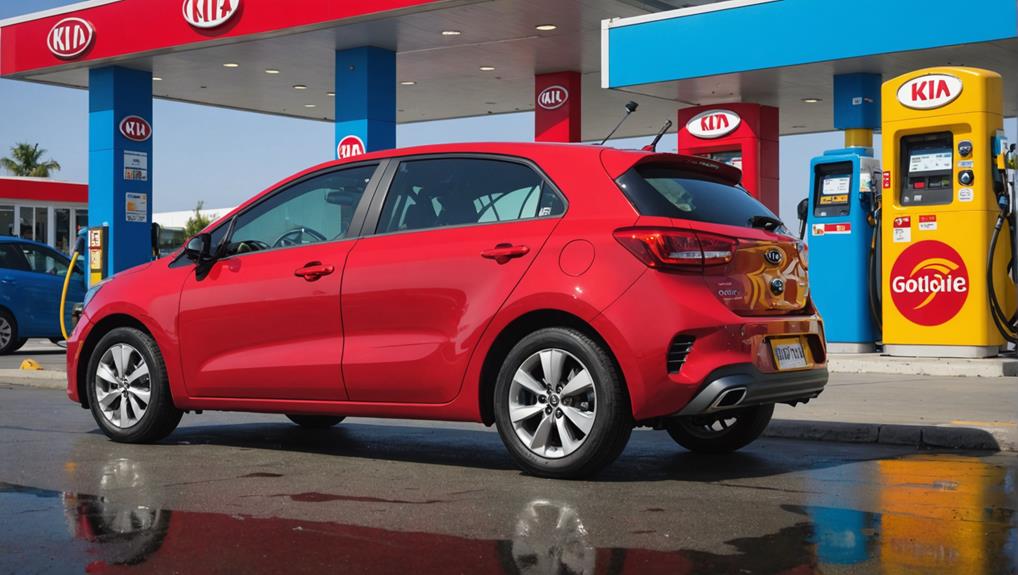
When it comes to fuel efficiency in your Kia Rio, choosing the right fuel makes a significant difference. You might be tempted to go with the cheapest option, but using the recommended fuel can enhance your Rio's performance and improve your miles per gallon (mpg).
Your owner's manual specifies the ideal octane rating, which is designed to optimize fuel combustion and efficiency. Opting for premium fuel when it's not necessary can be a waste of money, while using lower-grade fuel than recommended may lead to knocking and reduced performance.
Keep in mind that using the correct fuel type is one of the simplest ways to improve Kia Rio mpg. Additionally, pay attention to fuel brands. Some brands add cleaning agents that help maintain your engine's health, leading to improved efficiency over time.
Lastly, consider fuel additives that can help clean your engine and boost efficiency, but always consult your manual before trying new products. By making informed choices about the fuel you use, you're not just boosting your Kia Rio's performance; you're also contributing to a cleaner environment and saving money in the long run.
Frequently Asked Questions
How Does the Kia Rio Compare to Competitors in Fuel Efficiency?
When you compare the Kia Rio to its competitors, you'll notice it often excels in fuel efficiency.
With its compact design and efficient engine, it typically offers better miles per gallon than many rivals in its class.
You'll appreciate how it balances performance and economy, making it a smart choice for those looking to save on fuel costs.
What Are the Best Aftermarket Accessories for Improving Fuel Efficiency?
If you're looking to turn your ride into a fuel-saving superhero, consider investing in aftermarket accessories. A cold air intake can boost airflow, helping your engine breathe better, while lightweight wheels reduce rolling resistance.
Don't forget about a high-efficiency exhaust system; it's like giving your car a turbocharged boost!
You'll also want to check tire pressure regularly and consider a fuel-efficient driving monitor to keep your habits in check.
Does Weight Impact the Kia Rio's Fuel Efficiency?
Yes, weight does impact your Kia Rio's fuel efficiency. The more weight you carry, the harder your engine has to work, which can lower your miles per gallon.
If you're looking to boost efficiency, consider removing unnecessary items from your trunk and avoiding heavy aftermarket accessories.
Every little bit counts! By keeping your vehicle lighter, you'll not only save on fuel but also enhance overall performance, making your drives more enjoyable.
Are There Specific Weather Conditions That Affect Fuel Efficiency?
When it rains, it pours—and that can affect your fuel efficiency.
Cold weather causes your engine to work harder, while hot weather can lead to increased air conditioning use, both decreasing mileage.
Additionally, windy days create drag, further impacting efficiency.
By being mindful of these conditions, you can adapt your driving habits to maximize fuel economy.
How Does Fuel Quality Influence Kia Rio's Performance and Efficiency?
Fuel quality plays an essential role in your Kia Rio's performance and efficiency.
When you use high-quality fuel, your engine runs smoother and more efficiently, which can enhance fuel economy. Lower quality fuels might contain impurities that can lead to engine knocking or deposits, harming performance.
By choosing the right fuel, you're not only optimizing your vehicle's output but also helping to extend its lifespan.
Conclusion
In your quest for fuel efficiency with your Kia Rio, remember that small changes can lead to big savings. By maintaining your vehicle, adjusting your driving habits, caring for your tires, and choosing the right fuel, you'll not only stretch your gas dollars but also enjoy a smoother ride. Think of your car as a well-tuned instrument; when you play it right, the music of savings will resonate with every mile you drive.

